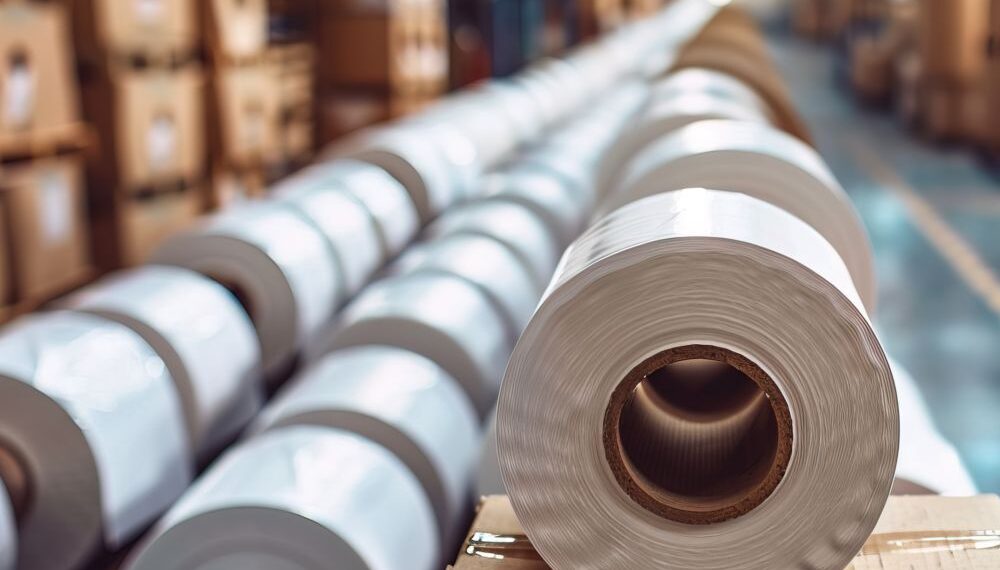Efficiency and accuracy have become priorities for many industries, from automotive to pharmaceuticals, to stay ahead of the curve and compete in the highly saturated market. In the manufacturing industry, for example, portable printers like the M211 Label Printer are now integral tools that offer flexibility and on-the-go options.
According to the label printer market report, the adoption and rise of portable label printers were fueled by several factors, such as the need for real-time data updates, increased mobility on factory floors, as well as the growing focus on traceability through the entire value chain. Let’s look at the various applications of these printers in manufacturing and how they can also benefit you. Read on for more.
Automotive manufacturing
The automotive sector heavily relies on durable tables for efficient parts tracking throughout production, and label printers play a crucial role in this process. In fact, labels here must be resistant to extreme temperatures, withstand exposure to all sorts of oils and chemicals, and be compatible with barcode and RFID technologies.
This is why manufacturers often choose thermal printing technology to create such “strong” labels, as this approach produces high-resolution and long-lasting print (that can survive such conditions).
Food & Beverage manufacturing
In the F&B industry, the key is to use food-safe label materials, which ensure product safety and regulatory compliance. Such compliance labelling ensures that materials meet the strict requirements that prevent contamination and maintain product integrity.
For instance, a key characteristic of food-safe on-site labelling includes low migration properties that prevent the transfer of chemicals to the products, as well as the resistance to moisture, cold temperatures, and oils.
Pharmaceutical manufacturing
Industrial labelling solutions in pharmaceuticals involve durable labelling materials. The main requirement is to print tiny text while maintaining legibility—no smaller than 10 points (with some exceptions).
One key technique is tamper-evident packaging, ensuring product integrity and patient safety. Plus, many pharmaceutical companies are now implementing printing serialisation and track-and-trace technologies to enhance supply chain security and reduce theft.
Textile manufacturing
Portable printers come in handy throughout the textile manufacturing process (from raw materials collection to the production of final goods). In particular, handheld inkjet printers and thermal label printers can create labels to track the labels through the entire process.
These printers also allow on-the-spot printing of quality control tags, care labels, and size information, not to mention their use for customisation and branding.
Chemical manufacturing
The chemical industry is in hand with textiles, as both rely on each other. As chemicals can be dangerous to use, portable printers allow them to enhance safety and compliance within the industry. For example, such printers enable the on-the-spot creation of GHS-compliant labels and real-time labelling of raw materials.
The portability feature, in fact, allows labelling at any point of the production line, helping to adapt to fast-moving production as quickly as possible.
Electronics manufacturing
Like other industries, it is essential to be efficient and accurate in electronics. The most common applications of mobile printers for professionals in electronics include labelling electronic components, circuit boards and various assemblies. This also reduces the errors associated with manual labelling.
So, printing capabilities bring flexibility, efficiency, and, most importantly, compliance with industry standards, allowing them to identify every product and ensure they are further tracked in the system.
Aerospace manufacturing
Since aerospace is a highly specialised and regulated industry, precision and quality are paramount at the on-site labelling. In the production of aircraft or spacecraft, portable printers allow the creation of labels instantly, thereby acting as a key mechanism for parts identification, assembly instructions, quality control tagging, and inventory management.
Furthermore, these printers can ensure serialised labelling, create barcodes and QR codes, and generate labels with specific regulatory information such as FAA compliance data.
And here you have it! Now, you know how to use portable printers in every part of the manufacturing process to make them more efficient, effective, and compliant with industry standards.



